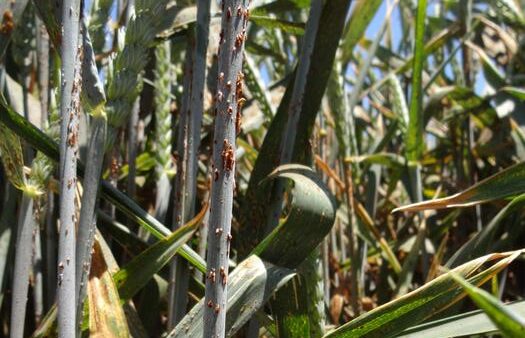How European and Chilean seed companies and agencies are meeting the challenges of counter-season production during a pandemic
Even though the pandemic has caused challenges large and small around the world this year, right now as you read this, counter-season seed production is proceeding in Chile in quite a normal way. This is good news for both the European and global seed industry and all those worldwide that eat food products made from the crops involved.
Both seed production and research trials in Chile, which take place roughly from September to March, have been critical activities for seed firms in Europe and around the world for many years, and in some cases, for decades. AsMario Schindler, executive director at the Chilean Seed Association (ANPROS), has noted, this is due to Chile’s climate and the development of world-class seed industry with a highly-skilled and knowledgeable workforce and all the necessary support systems.
In May 2020, Miguel Angel Sanchez, executive director at ChileBIO CropLife reflected in a journal article on the fact that Chile is now a main global player in terms of seed production and research. “Chile has a key role contributing to the reduction in seed production shortages in the Northern Hemisphere by speeding up the development of new hybrids, cultivars and genetically-modified (GM) organisms,” he states. “Between 2009 and 2018, 1,081 different seed-planting events were undertaken for seed multiplication and/or research purposes. Every single event that had commodity cultivation status in 2018 in at least one country underwent field activities in Chile at least once over the last 10 years.”
Sanchez adds that because Chile has just adopted a regulatory approach for new plant breeding techniques, this should contribute to maintaining the country’s status “as a hot spot for future innovation in plant breeding-based biotechnology.”

Planning ahead key
One of the most striking global effects of COVID-19 has been delays in shipping goods. ANPROS has therefore been stressing for some time that everything to do with counter-season production in Chile must be done more in advance than usual. “Sending the seed as soon as possible to Chile is one of the main challenges, as well as all the planning,” Schindler says. At the same time, ANPROS has been doing what it can. “We have been working with our authorities in order to implement different actions for speeding up every process regarding seed movement,” Schindler reports, “such as a joint working group ANPROS-SAG (SAG is the Chilean Ministry of Agriculture) that’s monitoring every single potential problem.”
Nicolás Sahli, CEO at Chilean agricultural firm CIS Agro, echoes Schindler in his advice for European seed companies and those based elsewhere. “Act in advance,” Sahli says, “plan more and be rigorous with documentation to avoid unforced mistakes.” He thinks ANPROS has done “a great job” coordinating with Customs, SAG and other Chilean authorities to make sure the movement of seed is proceeding, and that more documentation is going electronic. Indeed,
ANPROS and ANPROS-SAG are collaborating with the Chilean authorities to digitize more paperwork related to seed certification and phytosanitary certification. Chile already has the e-Phyto (electronic phytosanitary certificate) system in place with the EU, U.S., Argentina and other countries. Schindler and his team have also sent inquiries to the government regarding travel restrictions and how the seed community can deal with these.
Agriculture has been declared of strategic importance by the Chilean government, and therefore even if a Chilean city is put under lockdown, all those involved in activities such as seed production can move within and in/out of a city with the proper paperwork. In terms of entry for foreigners, it is important to note that:
- All non-residents who have been in the UK in the last 14 days are banned from entering the country.
- Every person entering the country must have a negative PCR, taken 72 hours before boarding the plane and the proper paperwork.
- From December 31, 2020 and for a period to be determined, all those who enter the country must perform a 10-day quarantine (regardless of their nationality, if they are Chilean or resident). They may leave the quarantine with a negative PCR result, which can be taken from the seventh day of quarantine onwards. While waiting for their result, they must remain in quarantine.
Companies check in
To hear more about how things are going in Chile, we reached Eduardo de la Sotta, General Manager at Curimapu Export in Chillán, Chile. In late October 2020, he reported that “the seed import is almost finished, most of the fields are planted and everything was done properly.”
Like all other similar companies, Curimapu is providing digital crop updates to its clients until entry into the country is possible, but also perhaps for the foreseeable future. In Curimapu’s case, these updates are offered through a new online platform that the staff began to develop last March. Customers can login and check on pictures and videos of each field taken at the ground level and with a drone.
“Besides this, we also send a weekly report of each field with all the information and pictures,” explained de la Sotta. “Last season, we had started a pilot project and this season we are also running all of our fields with a satellite monitoring platform. In this way, our farmers, field workers and customers can check by themselves the vigor index of each field during all seasons, checking all developmental stages, etc. We have also improved our information system in order to give our customers full transparency and the most updated information.”
Bayer also reports that operations in the counter season are going smoothly in Chile this year. “Our field and site operations required some extra resources and adjustments, but overall, we were able to keep lead times and efficiencies,” reports Yuri Charme, Bayer’s head of product supply for Latin American Vegetables, Seeds and Chile Row Crops. “It was absolutely key to empower people to look for creative solutions and make fast decisions to adapt to new situations.”
Some challenges in phytosanitary or customs clearance and air cargo availability delayed some business operations during the first few weeks of the pandemic, but Charme says regulators, partners and vendors adapted quickly. “A very important tool in this arena has been the digitalization of processes, documents and authorizations, something that will remain with us,” he says. “Besides [all this], I’d say intense and systematic coordination in the whole internal and external supply chain, more than usual, was fundamental. This allowed anticipation of potential scenarios so that we were ready to apply action plans to overcome situations.”
BASF’s experience has also been smooth. Its teams in Chile, as with those at other firms, have been permitted to move between regions as needed with special permits, using social distancing and masks. “With respect to this, BASF local team members are visiting the fields, taking notes, videos or pictures,” explains Úlia de Domènech, BASF global head of communications for vegetable seeds.

Will digital updates continue?
It’s anyone’s guess how much the 2021/2022 counter season in Chile will resemble the one happening now. Will company travel go back to the way it was in years past or will companies rely on online updates of their crops going forward?
Kevin McNaughton, production manager at Alberta, Canada-based HyTech Production (which has had a subsidiary business in Chile since 2006), notes that “our customers trust us but they value seeing the fields for themselves. In the future, once travel is back to normal, I think our customers will want to resume trips to Chile. Ag people always like to have their boots on the ground. We will have to see how much value we get from drone and satellite imagery as the season progresses.”
McNaughton notes that with drone and possibly satellite imagery, and with internet bandwidth growing and allowing longer videos to be shared, HyTech may re-think how it operates in Chile in the future. “A lot of that is because we have trusted, experienced employees,” he says. “However, there will never be a substitute for physically being in the field.”
If you have tips or stories to share about your counter-season experience during the COVID-19 pandemic, we would like to hear from you. Please email mbruins@seedworldgroup.com










